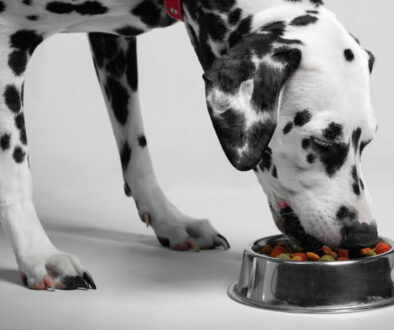Veterinary Care for Dogs: Keeping Your Dog Happy and Healthy
Dogs have rightfully earned the title of “man’s best friend” due to their unwavering loyalty, companionship, and unconditional love. And just like any other family member, dogs also require proper care and attention to lead healthy and fulfilling lives. One crucial aspect of responsible pet ownership is providing them with regular veterinary care.
In this comprehensive guide on veterinary care for dogs, we will delve into the essential steps and considerations to keep your furry friend in excellent health. From routine vaccinations and regular check-ups to nutrition and common ailments, we will cover all the aspects you need to know to ensure the well-being of your beloved canine companion.
The Importance of Veterinary Care for Dogs
When it comes to our furry friends, prevention is always better than cure. Regular veterinary care is vital in identifying and addressing potential health issues before they escalate into more significant problems. A proactive approach not only improves your dog’s quality of life but also saves you from potentially costly treatments down the road.
Early Detection for Better Outcomes
Regular check-ups at the veterinarian offer the opportunity for early detection of potential health issues in dogs. By catching problems early, veterinarians can provide timely treatment and improve outcomes for your furry friend. Here are some aspects of early detection to keep in mind:
- Annual Check-ups: Scheduling regular annual check-ups is crucial for detecting any underlying health conditions that may not be apparent to you. Your veterinarian will assess your dog’s overall health and perform a thorough examination.
- Monitoring Behavior Changes: As a pet owner, it’s important to pay attention to any changes in your dog’s behavior, such as decreased appetite, lethargy, or increased thirst. These changes could be indicators of underlying health problems.
- Diagnostic Tests: In some cases, your veterinarian may recommend diagnostic tests, such as blood work, X-rays, or ultrasound, to further investigate any potential issues. These tests can help detect diseases or conditions in their early stages.

Preventing the Spread of Diseases
Vaccinations play a crucial role in preventing the spread of diseases among dogs. Here’s what you need to know about vaccinations and their importance:
- Core Vaccines: Core vaccines are considered essential for all dogs and protect against highly contagious and potentially fatal diseases such as distemper, parvovirus, and rabies. These vaccines provide long-lasting immunity and are typically given during the puppy’s initial vaccination series.
- Additional Vaccines: Depending on your dog’s lifestyle and potential exposure, there may be additional vaccines recommended by your veterinarian. These may include vaccines for diseases such as Bordetella (kennel cough), Lyme disease, or leptospirosis.
- Booster Shots: Vaccinations require booster shots to maintain immunity levels. Boosters are given at specific intervals recommended by your veterinarian to ensure your dog remains protected. It’s crucial to stay on schedule to ensure your dog’s immunity is maintained.
Expert Guidance for Nutritional Needs
Proper nutrition is essential for your dog’s overall health and well-being. Consulting with your veterinarian can provide you with expert guidance on meeting your dog’s specific nutritional needs. Consider the following aspects:
- Balanced Diet: A balanced diet should include high-quality proteins, carbohydrates, healthy fats, vitamins, and minerals. Your veterinarian can help you determine the best commercial food or guide you in creating a balanced homemade diet.
- Age and Breed Considerations: Different life stages and breeds may have specific dietary requirements. Puppies, adult dogs, and senior dogs have varying nutritional needs, and certain breeds may be prone to certain health conditions that can be managed through diet.
- Individual Considerations: Your veterinarian can provide guidance based on your dog’s specific needs, such as weight management, food allergies or sensitivities, or medical conditions. They may recommend specialized diets or supplements to support your dog’s health.
Incorporating these expert guidelines into your dog’s diet can promote their overall health and prevent nutritional deficiencies or excesses.

Frequently Asked Questions (FAQs):
How often should I take my dog to the veterinarian for a check-up?
It is generally recommended to take your dog to the veterinarian for an annual check-up. However, older dogs or those with underlying health conditions may require more frequent visits. Consult with your veterinarian to determine the best schedule for your dog.
Can I administer vaccinations at home?
Vaccinations should be administered by a licensed veterinarian. They are trained to properly handle and administer vaccines, ensuring their effectiveness and safety for your dog.
What are some signs that my dog may be experiencing pain or discomfort?
Signs of pain or discomfort in dogs can include changes in appetite, increased agitation, limping or hesitation to move, excessive licking or chewing, difficulty breathing, or changes in urination or bowel movements. If you notice any of these signs, it’s important to consult with your veterinarian.
Is it important to brush my dog’s teeth regularly?
Regular dental care, including teeth brushing, is crucial for maintaining your dog’s oral health. Dental disease can lead to pain, tooth loss, and even systemic health issues. Consult with your veterinarian on proper dental hygiene routines for your dog.
In Conclusion
Regular veterinary care is crucial for providing your dog with the best possible quality of life. By prioritizing routine vaccinations, regular check-ups, balanced nutrition, and timely treatment of common ailments, you can ensure that your furry friend remains healthy, happy, and by your side for years to come.
One of the most important aspects of regular veterinary care is vaccinations. Vaccinating your dog protects them from highly contagious and potentially life-threatening diseases such as distemper, parvovirus, and rabies. These diseases can be extremely dangerous, and without proper vaccinations, your dog may be at risk. By staying up to date on vaccinations, you are taking a proactive approach to prevent illness and keep your dog safe.
Regular check-ups with your veterinarian are also essential. During these visits, your vet can conduct a thorough physical examination and identify any potential health issues early on. Early detection allows for timely treatment, which can greatly improve your dog’s prognosis and overall well-being. Additionally, regular check-ups provide an opportunity for you to discuss any concerns or questions you may have about your dog’s health and behavior.
Proper nutrition is another crucial aspect of responsible pet ownership. Providing your dog with a balanced and nutritious diet is essential for their overall health and longevity. Your veterinarian can recommend the appropriate diet for your dog’s age, breed, and specific needs. They can also address any concerns related to weight management and dietary restrictions, ensuring that your pet receives the necessary nutrients for optimal health.
Finally, prompt treatment of common ailments is vital. Dogs, like humans, can experience a range of health issues such as ear infections, dental problems, and skin conditions. By seeking veterinary care at the first sign of a problem, you can prevent these issues from escalating and causing further discomfort or complications for your dog.
In conclusion, regular veterinary care should be a top priority for all dog owners. By ensuring that your dog receives routine vaccinations, regular check-ups, balanced nutrition, and timely treatment when needed, you are providing them with the best possible care and maximizing their chances of living a healthy and fulfilling life. Our furry friends rely on us to be their advocates and ensure their well-being, so let’s make veterinary care a priority and give them the love and care they deserve.
Also Read:



